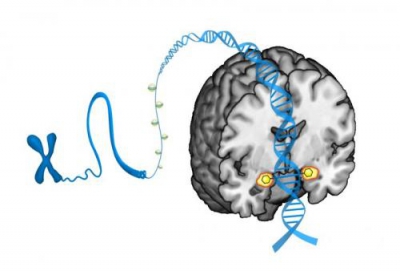Running is one of the best fat blasting, calorie burning, heart toning exercises around. Some people are reluctant to do it but once they get started, they find themselves addicted to the feeling of moving at top speeds through open air. The release of endorphins that comes after the first twenty minutes of running gives a sense of peace and tranquility - and the feeling experienced when a run is completed makes it all worthwhile. As with most things in life, moderation is key. Some runners adopt the attitude that if a little running is good, more must be better and gradually expand their miles until they're spending more time running than relaxing. Unfortunately, too much running can have its drawbacks. Here are some of the disadvantages of hitting the pavement too often.
Dangers of Too Much Running: Loss of Muscle Definition
Running takes a lot of energy. Once your glycogen stores are depleted, your body turns to other fuel sources. If you run for long distances, muscle breakdown occurs as your body looks for sources of additional fuel to meet the high demands for energy. If you've ever seen long distance runners, you'll notice that they appear long and lean with little muscle development. That's because during long runs, the body uses protein derived from muscle tissue for additional energy. The same thing can happen to anyone who starts running too much especially if not enough protein and complex carbohydrates are eaten. Adding resistance training can help preserve muscle tone and strength to some degree, but if you're doing too much running you'll be offset any real gains achieved from muscle training.
Dangers of Too Much Running: Risk of Injury
Running is hard on the knees, feet, and ankles and if you run outdoors on hard pavement, the effects are doubled. Too much running can lead to a variety of overuse syndromes and increase the risk more serious injuries that may put you on the sidelines. To avoid this, cut back on mileage and do resistance training to strengthen the muscles that stabilize the joints and tendons. This adds a layer of protection against injury. Variety in an exercise routine ensures that no particular muscle group is overused. For best results, combine running with other forms of aerobic and resistance training.
Dangers of Too Much Running: Overtraining Syndrome
Too much running can lead to overtraining. Overtraining is a real syndrome that occurs when too much exercise is performed without giving the body sufficient time to recuperate. Symptoms can include loss of energy, irritability, mood disturbances, nausea, an elevated heart rate, as well as increased susceptibility to colds and other illnesses. If an overtrained body isn't allowed to rest, it can lead to injury and complete exercise burnout. Allowing time off to recuperate and cutting back on mileage can help to correct this problem.

















